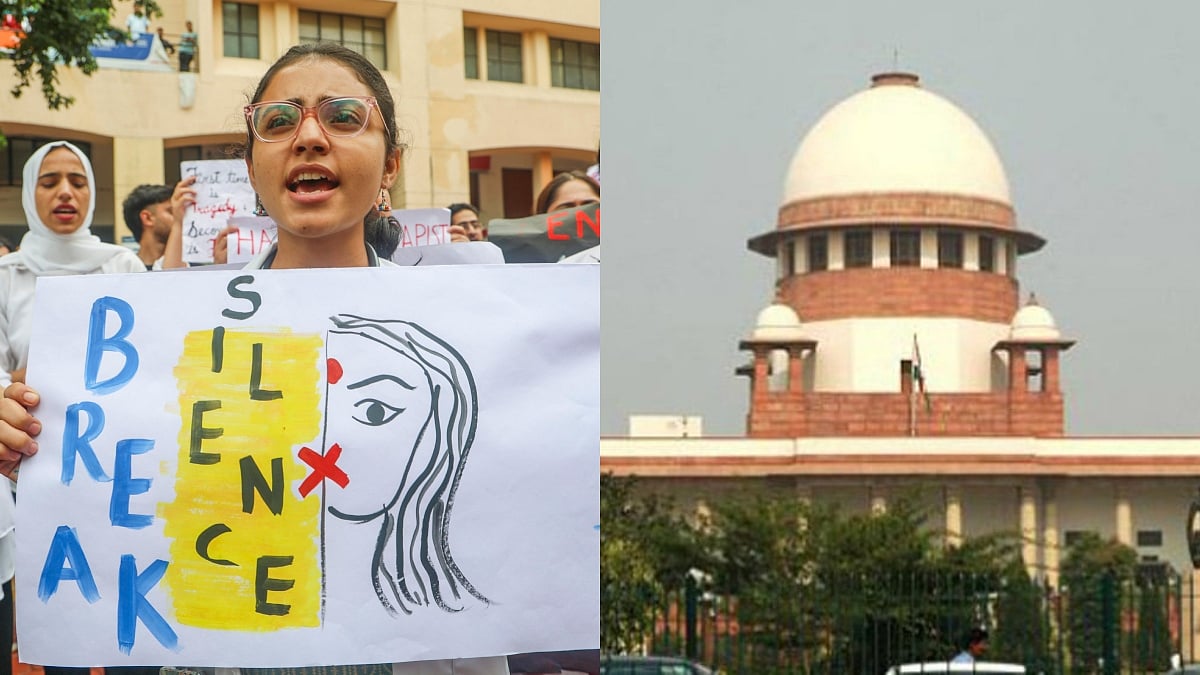Baby Chakraborty, KalimNews, September 9, 2024, New Delhi/ Kolkata:
Amidst the ongoing turmoil following the tragic rape and murder of a young doctor at RG Kar Hospital in Kolkata, the Supreme Court of India has issued a stern directive to junior doctors to end their month-long strike and return to work. The strike, which began as a protest demanding justice for the slain doctor and the resignation of the Kolkata Police Commissioner, has severely impacted healthcare services in the state, leading to a reported 23 deaths due to inadequate medical attention over the 28-day period.The protests have included a “Lalbazar Abhiyan” (march to Lalbazar) campaign, where junior doctors demanded accountability from the police administration and expressed their dissatisfaction with the handling of the case. Despite repeated pleas from the Chief Minister, Mamata Banerjee, to resume work to restore normalcy in the healthcare system, the protesting doctors have continued their strike, intensifying the crisis.
Supreme Court’s Directive to Junior Doctors
On Monday, in its second hearing on the matter, the Supreme Court of India delivered a clear message to the striking doctors, emphasizing their primary duty to provide medical care. The bench, led by Chief Justice DY Chandrachud, directed the junior doctors to return to their duties by 5 PM on Tuesday, recognizing the critical nature of the situation and the urgent need to resume healthcare services.
“Providing treatment is the foremost responsibility of doctors. Given the circumstances, it is imperative that they return to work immediately,” the Chief Justice stated during the hearing. The Supreme Court also assured the doctors that the state government would not take any punitive action against those who return to work within the stipulated time frame.
Protection from State Action, But with Conditions
The apex court further clarified that while the state government is barred from taking any action against the doctors who resume their duties on time, this immunity does not extend beyond the specified period. “If the doctors do not return to work even after the deadline, the Supreme Court cannot prevent the state government from taking necessary action against them,” the bench stated, indicating that the patience of both the judiciary and the state administration is wearing thin.
The Supreme Court’s directive is seen as an attempt to balance the need for justice for the young doctor with the broader public interest of maintaining essential health services. The court also reminded the state government of its responsibility to ensure the safety and security of all medical professionals, thereby addressing some of the concerns raised by the striking doctors.
Ongoing Crisis in West Bengal’s Healthcare System
The strike by junior doctors has thrown West Bengal’s healthcare system into chaos. Hospitals have been struggling to provide adequate services, with many patients being turned away or referred to other facilities due to a lack of medical staff. Reports from the state indicate that at least 23 people have died over the past month due to the disruption caused by the strike, underscoring the dire situation.
The Chief Minister, Mamata Banerjee, has repeatedly appealed to the striking doctors to resume their duties, emphasizing that the state government is committed to addressing their concerns. “We understand the grief and anger, but the people of Bengal need their doctors back at work. Lives are at stake,” she said, urging the medical community to act in the public interest.
A Crucial Moment for Healthcare in Bengal
The Supreme Court’s directive marks a crucial moment in the ongoing struggle between the protesting doctors and the state administration. While the demand for justice and safety for healthcare professionals remains strong, the extended strike has also exposed the vulnerabilities of the healthcare system in West Bengal, highlighting the need for a balanced approach that ensures both justice and the continuation of essential services.
As the 5 PM Tuesday deadline approaches, all eyes will be on the junior doctors to see if they heed the Supreme Court’s call to return to work or risk potential state action. The decision taken by the medical community in the coming hours will significantly impact not only the ongoing investigation but also the future of healthcare services in West Bengal.
The Supreme Court’s ruling also serves as a reminder of the delicate balance that needs to be maintained between protests for justice and the duty to serve the public. As the RG Kar Hospital case continues to unfold, it is hoped that all stakeholders can work towards a resolution that ensures both justice and the uninterrupted delivery of healthcare services to the people of West Bengal.

